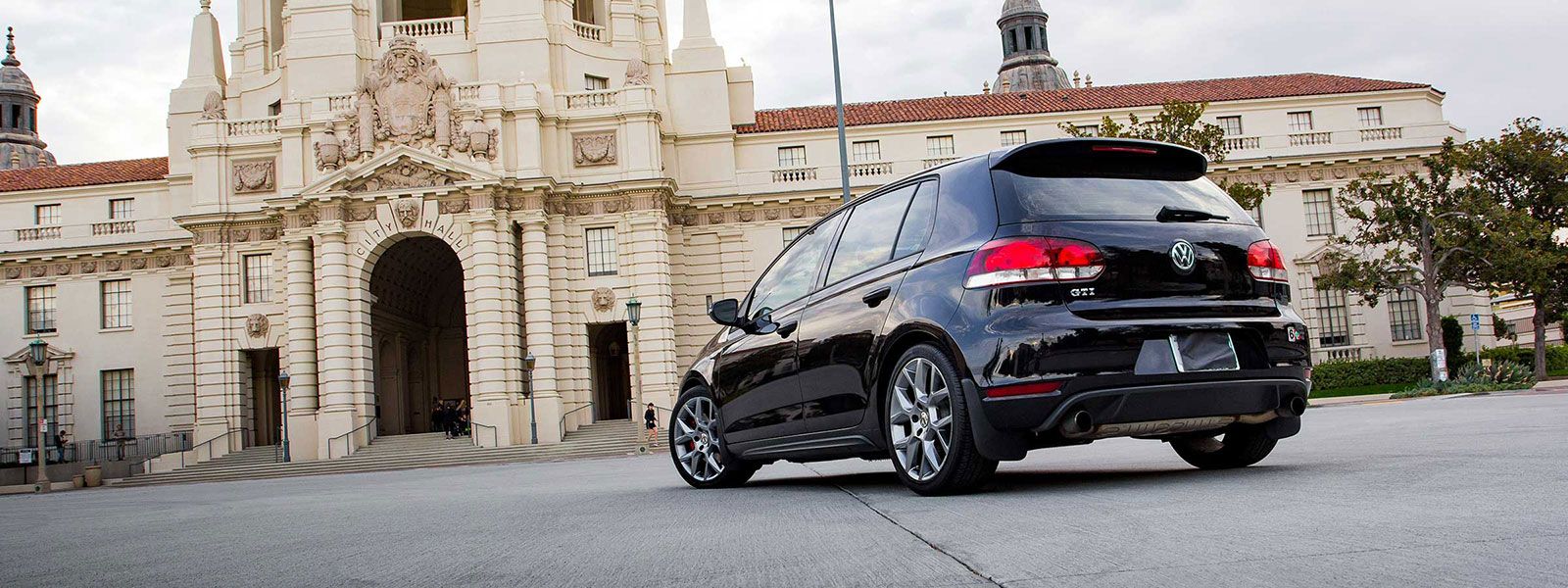Achieving Your Financial Goals through Purchasing a Used Car
Posted Thursday, Oct 26, 2023
There are few things as exciting as buying a shiny new car. Unfortunately, most brand-new rides come with a price tag many people cannot afford. According to the Kelley Blue Book, the average price of a new car hit over $48,000 in June 2023, making it quite a high investment for many people.
That doesn't mean you are fated to remain carless. Used cars can offer you a huge amount of value for your money—even more so than new cars, in some cases. Let's look at all the benefits a new car can offer you financially. Keep in mind, though, that you should perform due diligence. After all, you don't want yourself to end up with a lemon.
So, let's see why buying a used car is a good idea.

The Cost of New Cars vs. Used Cars
There is something special about smelling the oil-and-leather smell of a new car –until you see the price tag. On the other hand, used cars offer you a more cost-effective option. Cars usually depreciate the most in their first three years of use; this means that a used car can cost significantly less even if it is used for just a few years and will still be able to offer you reliable transportation. By opting for a used car, you can save thousands of dollars upfront, which can be redirected toward your financial goals.
Lower Monthly Payments
One of the primary ways buying a used car can aid in your financial journey is by reducing your monthly expenses. When you finance a new car, the higher purchase price often translates into larger monthly payments. These payments can strain your budget and limit your ability to save for other goals.
Used cars, on the other hand, typically come with lower monthly payments. The reduced purchase price and potentially lower interest rates make it easier to fit the cost of a used car into your budget. This leaves you with more disposable income that you can allocate toward savings or investments.
Lower Insurance Costs
Another financial advantage of buying a used car is the potential for lower insurance premiums. New cars often come with higher insurance costs due to their higher value, increased repair expenses, and the need for comprehensive coverage.
Used cars generally have lower insurance costs, especially those only a few years old. You can often choose a policy with lower premiums while still maintaining adequate coverage. Lower insurance costs can free up additional funds to save or invest for your future financial goals.
Note: Keep in mind, however, that if the car is several years old, the cost of insurance can actually be higher.
Reduced Depreciation
Depreciation is a significant factor that affects the financial value of a vehicle. New cars depreciate rapidly during the first few years of ownership, losing a substantial portion of their value. This rapid depreciation can be a major obstacle when you decide to sell or trade-in your vehicle after a few years of use.
Used cars, on the other hand, have already experienced much of their initial depreciation. This means that when you buy a used car, you're likely to lose less money in terms of depreciation over the course of your ownership. Hence, a used car holds its value better, allowing you to preserve your investment for longer.
Wider Variety of Options
When you choose to buy a used car, you open the door to a wider range of options. Instead of being limited to the latest models available at a dealership, you can explore various makes, models, and years. This flexibility can be especially beneficial if you have a specific budget or prioritize features and reliability over having the latest technology.
Additionally, older models may come with lower registration fees and taxes, contributing further to your cost savings. By carefully selecting a used car that meets your needs and budget, you can make a smart financial decision that aligns with your goals.
Are Used Cars Less Reliable than Old Cars?
While cost savings are undoubtedly a significant factor in choosing a used car, it's essential to emphasize the importance of reliability. A reliable vehicle ensures you can commute to work, run errands, and go about your daily life without interruptions. Unexpected breakdowns or repair costs can throw a wrench in your financial plans.
However, the notion that used cars are inherently less reliable than new ones is a misconception. Many used cars, especially those with documented service histories and low mileage, can provide dependable transportation for years to come. In fact, in some cases, used cars may be even more dependable than brand-new cars, as any kinks or bugs in their systems have already been resolved during the previous ownership.
To ensure you're making a wise choice, it's crucial to research the specific make and model you're interested in and consider having the vehicle inspected by a trusted mechanic before finalizing the purchase.
Financing Options for Used Cars
Financing a used car purchase is a straightforward process that can be tailored to your financial situation. Banks, credit unions, and online lenders offer various loan options with competitive interest rates for used cars. To secure the best financing terms, it's advisable to shop around and compare offers from multiple lenders.
Furthermore, if you have an excellent credit score, you may qualify for low interest rates, which can further reduce the overall cost of buying a used car. A lower interest rate means more of your monthly payment goes toward paying down the principal amount, helping you build equity in the vehicle faster.
Balancing Your Financial Goals
Once you've decided to buy a used car, it's essential to consider how this choice fits into your broader financial goals. Here are some strategies to help you integrate your used car purchase into your financial plan:
Establish Clear Financial Goals
Before making any significant financial decisions, it's crucial to define your goals. Whether you're saving to take out a mortgage on a house, starting an emergency fund, or planning for retirement, setting clear goals will guide your financial choices and help you stay on track.
Create a Budget
A budget is a powerful tool for managing your finances effectively. It allows you to track your income, expenses, and savings, clearly showing your financial health. By incorporating your used car purchase into your budget, you can ensure it aligns with your overall financial plan.
Save for a Down Payment
If you plan to finance your used car purchase, consider saving for a down payment. A larger down payment can reduce your monthly payments and the overall interest you pay over the life of the loan. It's a smart way to lower the cost of your car purchase and keep your budget in check.
Explore Investment Opportunities
With the money saved by choosing a used car, you can explore investment opportunities to grow your wealth over time. Consider investing in stocks, bonds, real estate, or retirement accounts to help you achieve your long-term financial goals.
Continuously Review and Adjust
Financial goals and circumstances can change over time. Regularly review your budget, savings plan, and investments to ensure they align with your objectives. Adjust your strategies as needed to stay on the path to financial success.
A Smart Move for Your Financial Future
Buying a used car is a smart way to save money and contribute to your financial goals. By reducing upfront costs, lowering monthly expenses, and minimizing depreciation, a used car purchase can free up funds to redirect toward savings, investments, and achieving your financial aspirations.
If you're ready to take the smart step of buying a used car to bolster your financial health, consider reaching out to CORR Concepts, LLC. Their expertise in financial planning and investment strategies can help you make informed decisions that align with your goals. You can confidently navigate your journey to financial success with the right financial guidance.
